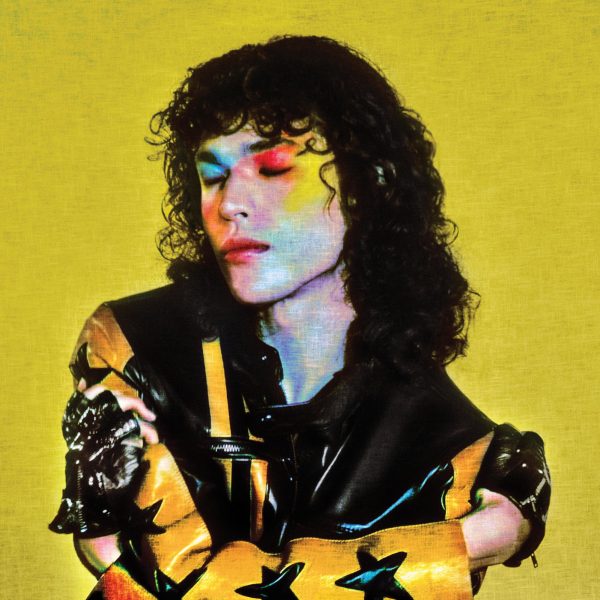
Prepare to be transported to a world where indie-pop meets the 1980s with the release of pop artist Conan Gray’s album “Found Heaven” on April 5. Seamlessly blending synth-pop elements, Gray draws inspiration from iconic pop artists of the 1970s and 1980s such as Elton John, Michael Jackson and Queen, offering listeners a captivating exploration of nostalgia, love and self-discovery.
Deviating from Gray’s typical melancholic ballads, “Found Heaven” comes two years after his second studio album, “Superache” (2022). His latest album explores his tumultuous journey through his first romantic relationship. Initially reminiscing on the comfort and thrill of the start of a relationship, Gray experiences unexpected heartbreak after being dumped by his partner. Through this experience, he confronts the reality of having his heart broken for the first time. He refers to the album’s tales of lost love as a “menace to society” record.
The album begins with the titular track “Found Heaven,” which serves as Gray’s attempt to heal deep-seated childhood traumas stemming from his religious upbringing and grappling with his sexual identity. Through the chorus, he aims to ease those uncertainties, singing, “Don’t be scared, little child / You’re no demon / There’s a God in the sky / Don’t believe him.”
Gray delves into the enduring emotions and complexities of relationships with “Never Ending Song” and “Fainted Love.” In “Never Ending Song,” he reflects on a turbulent relationship that refuses to fade away, despite repeated attempts to end it. Meanwhile, the vibrant synth-pop track “Fainted Love” depicts Gray driving alone through a deserted town on a Saturday night on the brink of losing his sanity as his partner reciprocates only a weak or “fainted” love.
One of the standout tracks on the album is “Alley Rose,” a piano ballad infused with 1970s elements reminiscent of John’s music. In the first verse, Gray describes picking up his soon-to-be ex from the corner store, and in the chorus, he admits, “Don’t leave me hangin’ alone again / Oh, where’d you go, go, Alley Rose?” This emotionally evocative track is both nostalgic and relatable with its heartfelt exploration of love and loss that resonates with listeners who have experienced similar heartaches, making this song one to listen to on repeat.
In an interview with Genius, Gray explained that he initially intended to name the track “Abbey Road” after the iconic 1969 Beatles album because he was in London at the time of writing the song. However, he changed the title because he and his partner shared their first kiss in an alley, and the titular “rose” symbolizes love. Nevertheless, “Alley Rose” still serves as a subtle homage to the Beatles’ album.
As Gray navigates the tumultuous final stages of his relationship, everything crumbles at his feet in “The Final Fight.” In this track, he confronts the betrayal by someone he once loved, seeking closure and resolution. Yet, in “Miss You,” Gray’s regret and longing for said relationship takes center stage. Grappling with the consequences of his actions, he reflects on his decisions as he sings, “I’ll be gone because you love me / I don’t know why / Is it wrong to now decide,” before asking the rhetorical question, “I miss you?”
In a departure from the theme of personal identity throughout the album, “Bourgeoisieses” serves as the outlier among the 13 tracks. In an interview with Rolling Stone, Gray revealed he intentionally misspelled the title. Describing it as “the weirdest song on the album,” Gray uses this track as a satirical commentary on the desire to belong to the wealthy upper class, while simultaneously acknowledging his lack of familiarity with their opulent lifestyle.
“Forever With Me” and “Eye of the Night” both delve into love, loss and the lingering impact of past relationships, but they differ in tone. In “Forever With Me,” Gray reflects on the past with a sense of acceptance and nostalgia, yet there’s a bittersweet permanence within his memories of the person.
On the other hand, “Eye of the Night,” a title which pays homage to Survivor’s 1982 track “Eye of the Tiger,” exudes a haunting and eerie tone. Gray paints a vivid picture of a haunting reverie from his past, evoking the sensation of being watched.
Despite their sonic differences, the album’s final two tracks, “Killing Me” and “Winner,” find Gray struggling with emotional turmoil and defeat.
In the 1980s dance floor-inspired track “Killing Me,” he describes the pain of being emotionally drained and begging his partner to stop inflicting pain on his heart. While the track features an upbeat tempo, its lyrics convey a deep melancholy as Gray sings, “And though I am cryin’ and bleedin’ and barely breathin’ / I can’t let go of your heart.”
But it’s the album’s concluding song, “Winner,” that stands out as one of the most powerful and gut-wrenching tracks. The introspective piano-led ballad delves into themes of manipulation, emotional abuse and the lasting effects of toxicity within relationships. Echoing the overarching themes of heartbreak and identity permeating throughout the album, Gray metaphorically waves a white flag in “Winner,” acknowledging a “certain freedom that comes from recognizing that you’ve been hurt” in a press release.
In his third album, “Found Heaven,” Gray reimagines 1980s pop by infusing it with contemporary dance music while maintaining his signature sentimental lyrics and smooth vocals. The result is an intriguing, sonic journey reminiscent of an indie-horror-romance soundtrack, offering a fresh take on both nostalgic and modern musical influences.















